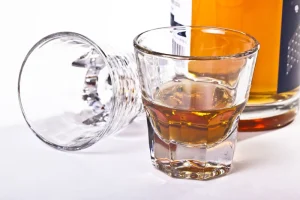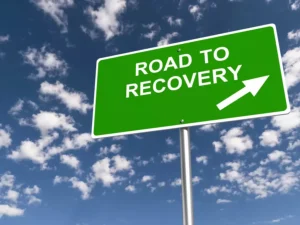Stages of Alcoholism: Early, Chronic, and End Stage
Young
December 15, 2021

In general, the course of alcohol withdrawal is highly variable and somewhat unpredictable. Screening and assessment tools do not allow physicians to predict with confidence who will or will not experience life-threatening symptoms. Millions of people join support groups to help stop drinking and stay stopped. Studies show support groups play an instrumental role in helping people develop healthy social networks that result in continued sobriety.
Alcohol Withdrawal Symptoms, Detox, Timeline, and Treatment
This makes it harder for people to realize that their drinking patterns are problematic. Yet, alcohol is highly addictive and can cause severe health problems. In addition to learning how to say no to alcohol in social settings, the recovery process typically requires looking inward. Exploring triggers will help break down the reasons you wanted to drink in the first place, making your recovery more sustainable. Working with a specialized therapist in alcohol therapy can be especially helpful for identifying triggers, working through past traumas, and developing a plan for when triggers do arise.
Embracing a Sober Lifestyle
- The Stages of Change Model outlines the steps many take throughout the addiction recovery process.
- They may begin this stage by taking small steps away from negative habits.
- Your doctor may also prescribe medications that can reduce withdrawal symptoms and cravings.
- However, the exact coverage will depend on your specific insurance plan.
- If you’re ready to make a positive change, here’s what you may want to know about the recovery process.
- It's a disease—an altering of the brain that controls a person's motivation and ability to make healthy choices.
- Once individuals recognize the need for change and accept the reality of their addiction, the next stage in the journey to alcohol recovery involves seeking help and treatment.
The team also manages any medical complications that arise during alcohol withdrawal. You'll want to find a rehab center that has medically-supervised detox capabilities so that you can comfortably and safely detox from alcohol. There are inpatient and outpatient options, but an addiction specialist should determine the best level of care for you based on your individual needs.
How Much Do I Have to Drink to Experience Withdrawal?
It's essential to continue attending support groups, counseling sessions, or therapy to address any underlying issues and maintain a strong support system. Regular check-ins with healthcare professionals and therapists can provide guidance, monitor progress, and offer assistance during challenging times. Embracing a sober lifestyle involves making conscious https://ecosoberhouse.com/ choices to abstain from alcohol and adopting healthy habits that support recovery. It's important to develop new routines and activities that promote physical and emotional well-being. Choosing the right rehabilitation program depends on various factors, including the severity of the addiction, personal circumstances, and individual needs.
Difficulty getting long, restful sleep is also common in the early days of the alcohol recovery timeline. We also suggest developing new nighttime rituals that calm your mind and body before bed. Journaling to release stressors or trying guided meditation are great places to start. In conclusion, embracing harm reduction and diverse modalities recognizes the uniqueness of stages of alcoholic recovery each individual’s journey in addiction recovery. By acknowledging differences, offering alternatives, and emphasizing flexibility, the recovery process becomes more accessible, person-centered, and ultimately more effective in promoting lasting positive change. Science indicates that triggers such as people, places, things, moods, and drug exposure play significant roles.
Working with your Care Team will ensure your decisions are personalized and informed, and that you have resources at your fingertips whenever you need them. Addiction involves brain mechanisms, particularly in the dopamine system crucial to reward processing. While stopping drug use is a pivotal aspect of recovery, it is only one part.

A person in this stage will be discovering freedoms in their new life that they may have never thought they could experience. They’ll likely still feel the temptation to drink, but they’ll be focused on their goal. After all, alcohol recovery isn’t about abstaining from a substance — it’s about changing your whole life. By acknowledging the need for change and accepting the reality of addiction, individuals take the first steps towards a healthier and sober life.

Recovery from addiction is not only possible, it is the rule, rather than the exception. S. National Survey on Drug Use and Health, more than 75 percent of people addicted to alcohol or drugs recover—their condition improves and substance use no longer dominates their life. It is often a long and bumpy path, and relapse is nearly inevitable—but that doesn’t spell the end of recovery.
- With longer term sobriety or moderation, a profound sense of clarity will emerge.
- You can check in with your physician about side effect management, and if possible, look to manage side effects for several weeks to experience the positive effects and weigh the side effects and benefits.
- Negotiating with oneself for a delay of use, which doesn’t deny the possibility of future use, and then getting busy with something else, capitalizes on the knowledge that cravings dissipate in about 15 minutes.
- Exploring triggers will help break down the reasons you wanted to drink in the first place, making your recovery more sustainable.
- This does not mean that a mental health condition will necessarily go aware when you stop drinking but abstaining from alcohol use can improve your symptoms and lead to better treatment outcomes.
Cycle of Addiction: Visual Guide to Understanding Addictive Behaviors
Of course, giving up alcohol is not always easy, and there may be some challenges along the way. But if you're committed to sobriety, it's possible to achieve your goal. Once the initial symptoms of withdrawal have subsided, you may find that you have more energy than you did before you stopped drinking. This is because alcohol is a depressant, so when it's no longer in your system, your body has more energy to work with. One of the best things about giving up alcohol is that you may find yourself feeling happier overall.
